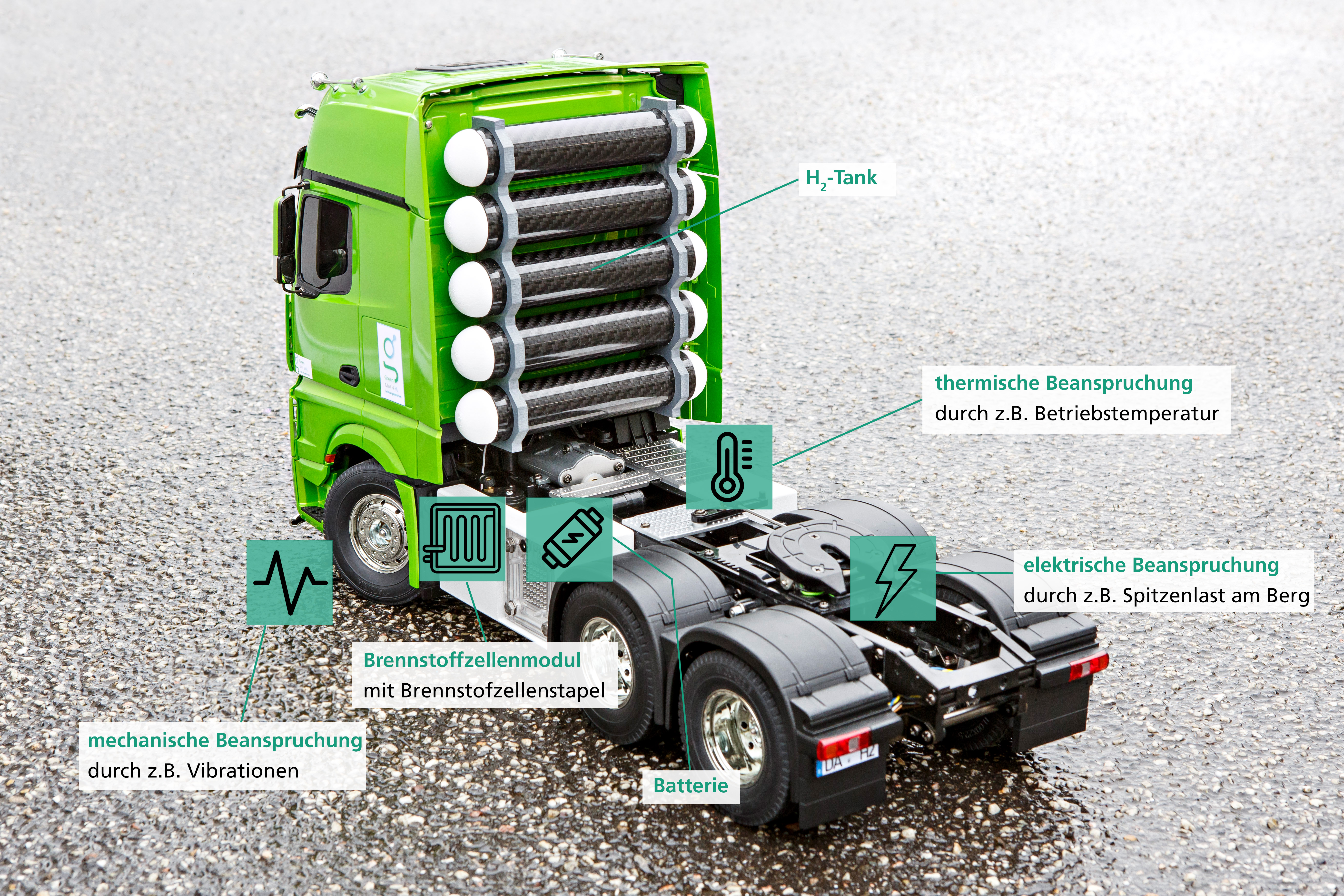The use of fuel cells offers great potential for CO2-neutral propulsion of commercial vehicles. However, this usage scenario means enormous stresses for the fuel cells used. Four Fraunhofer institutes therefore want to develop new methods to determine the reliability and safety of fuel cell stacks and to support the development of specific applications for commercial vehicles. As an associated partner, Fraunhofer IWMS contributes its expertise in the field of non-destructive testing.

The mobility revolution is also in full swing in the commercial vehicle sector. For heavy commercial vehicles in particular, electromobility with pure battery drive is not always the most suitable solution. Drive with electrical energy from hydrogen fuel cells can be an attractive alternative here. In this variant, commercial vehicles refuel with hydrogen, which is then converted by the fuel cell into electricity that powers the engine.
In order to provide the required power, several fuel cells are combined in a stack. In mobile applications, these stacks are exposed to high loads. These include highly complex, multi-physical (mechanical, thermal and electrical) and chemical stresses. Added to this, when used in commercial vehicles, are the special requirements in terms of life and operating time: modern trucks cover up to two million kilometers in their life cycle. In 2014, their average mileage was 23,891 kilometers - 76 percent more than that of cars.
How these special loads, for example from vibrations and pollutants, affect the behavior of fuel cell stacks is still largely unknown. In the project "Evaluation and Design of System Reliability of Fuel Cell Stacks under Multi-Physical-Chemical Stress in Commercial Vehicles - multiPEM", new methods for analysis, evaluation and testing are therefore being developed to enable the required reliability, safety and service life and to support cost- and time-efficient development of fuel cell stacks for commercial vehicles.
The consortium, led by the Fraunhofer Institute for Structural Durability and System Reliability LBF in Darmstadt, is looking for the first time at the effects of the various stresses at the stack level, which differs considerably from the stresses at the level of the materials or individual cells used. From this, the scientists derive suitable methods, for example, to detect critical defects, to understand aging and wear processes, and to be able to characterize the materials and components used within a stack.
The Fraunhofer IMWS contributes its expertise in non-destructive condition assessment, including by means of innovative magnetic field measurements. "In addition, we will verify the changes detected by our defect diagnostics, drawing on a wide range of methods for examining the microstructure," says Kerstin Witte-Bodnar, who is in charge of the project at Fraunhofer IMWS. "The manufacturers and developers of fuel cells, fuel cell modules and fuel cell systems can benefit from the new testing methods that we want to develop as a consortium, as can developers and system suppliers for test stands. In this way, we are helping to make green mobility efficient and safe."